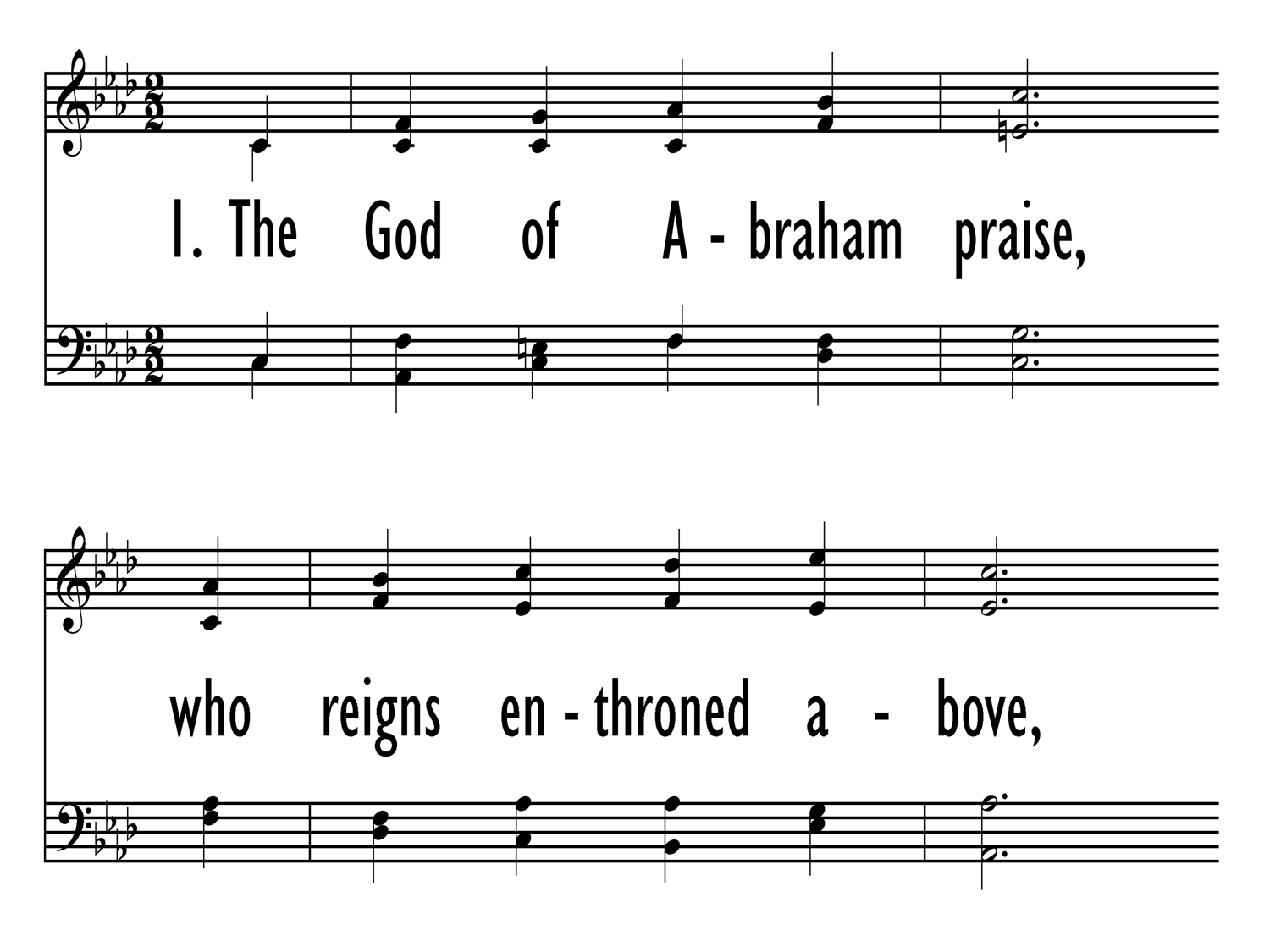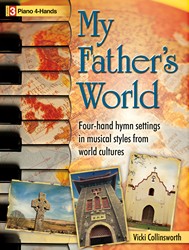1 The God of Abraham praise, who reigns enthroned above,
the Ancient of eternal days, the God of love!
The Lord, the great I AM, by heart and heaven confessed
we bow before his holy name forever blest.
2 He by his name has sworn, on this we shall depend,
and as on eagles' wings upborne to heaven ascend.
There we shall see his face; his power we shall adore
and sing the wonders of his grace forevermore.
3 The goodly land I see, with peace and plenty blest,
a land of sacred liberty and endless rest.
There milk and honey flow, and oil and wine abound;
the tree of life forever grows with mercy crowned.
4 There rules the Lord our King, the Lord our Righteousness,
victorious over death and sin, the Prince of Peace.
On Zion's sacred height his kingdom he maintains,
and glorious with his saints in light forever reigns.
5 Triumphant hosts on high give thanks to God and sing,
and “Holy, holy, holy” cry, “Almighty King!”
Hail, Abraham's God and ours! One mighty hymn we raise.
All power and majesty be yours and endless praise!


 My Starred Hymns
My Starred Hymns






